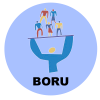- VT Call is a tool which provides a streamlined interface for quickly processing a long list of calls. It gives you the ability to quickly access all of the information you need to make effective sales calls, and integrates seamlessly with the vtiger data structure.
[accordions]
[accordion title=”Activity Types”]
- VTCall can work using any standard or custom vtiger activity types; to select which types of activities will be added to the list, click the \\\”Select Event Types\\\” button towards the top-right of the screen, click the appropriate checkboxes corresponding with the event types you’d like to see appear on the call list, and then click \\\”Save.\\\” Note: you must be logged in as Admin to do this.

[/accordion]
[accordion title=”Module and Field Settings”]
- VT Call gives you the ability to customize which fields from different modules will appear on the call list. To configure this, navigate to VT Call settings (Settings > Module Manager > VT Call Settings) and select the appropriate module from the dropdown towards the top of the screen. Use the other drop down menus to select which fields from that module will appear in VT Call. When you\\\’re finished configuring these fields, click \\\”Save.\\\”

[/accordion]
[accordion title=”Postpone Calls”]
- When the option “Allow users to postpone calls” is set to “Yes” in VTCall settings, a “Start Date” field will appear in the Activity Details section of each call. This allows users to set the call’s start time to some future date if they’re not able to complete the call as scheduled. Clicking “Save” after changing start date also updates end date for the call.
[/accordion]
[accordion title=”Filters”]
Radio button Date Filters
- These radio buttons can be used to Quick Filter the call list by date. In order to use these, the \”All\” filter must be selected from the filters dropdown to the right.
Custom filters
- Custom filters can be created for VT Call, similar to other list views in vTiger. To create a new filter, click the “New” link next to the filters dropdown at the top-right corner of the VT Call interface. Enter a name for your filter, and use the 9 dropdowns below to specify the columns which will appear in the list view.
- As in other vtiger modules, “Public” filters can be created which will be usable by other users. To create a public filter, check the “public” box when setting up your filter. If you create a public filter from a non-admin account, it must be “Approved” by an admin before it will be visible to others. To approve a filter, log in with an administrative account, load the filter, and click the “Approve” link which appears next to the filters dropdown menu.
- Custom filters also give you powerful filtering tools to help ensure that only the calls you wish to see will be visible on the list. Call lists can be filtered based on the values in any activity fields. To configure Advanced filter conditions, click on the “Advanced Filters” tab, select a field from the first dropdown menu, then select a logical operator from the second dropdown. Finally, enter the comparison value in the free-entry field to the right. You can group conditions together using “And” or “Or” logic, as specified by the And/Or dropdown which appears to the right when multiple conditions are configured.
[/accordion]
[accordion title=”VT Called Related Lists”]
- One of the most powerful features of VTCall is its ability to intelligently display information related to an event in the list. This means that all of the information needed to make effective sales calls will be available with fewer clicks and no searching.
- Each activity listing in VT Call starts with the Primary Record Information section. This section displays the basic information for the primary record this call is related to (i.e. an Account or Contact). The fields which appear in these sections can be customized in the VT Call settings page.
- Each VTCall event has a main Activity Information section, where basic information about the call is displayed (things such as start/end time, call notes, and other vtiger records the call is linked to). The Event information section also contains a dropdown reflecting the call status. When a call is set to “Held” or “Completed” another section appears with a checkbox and date field, allowing users to schedule a followup call when they click “Save” and close out the call.
- Further on down, each call has a number of related lists, displaying the Activity histories, Pending Activities, Email histories, and other records which are linked to the Account/Lead/Contact linked to this call.
[/accordion]
[/accordions]


